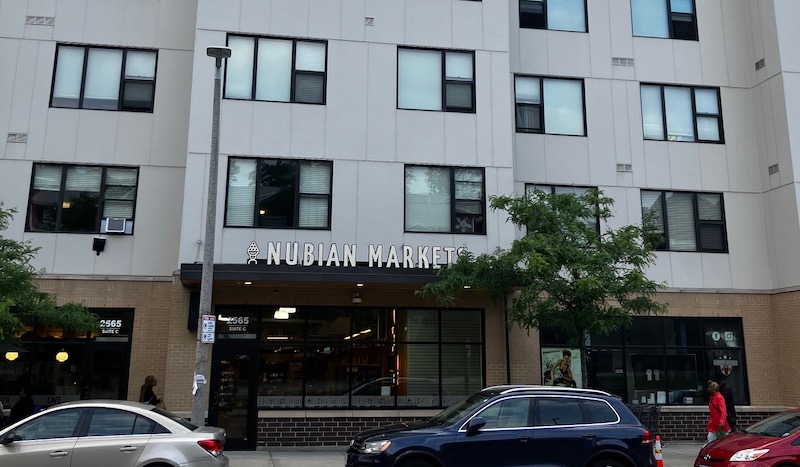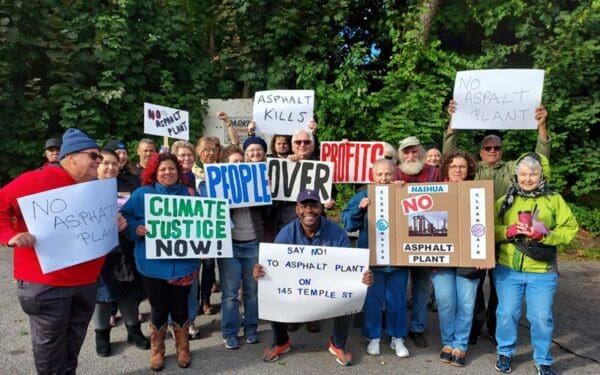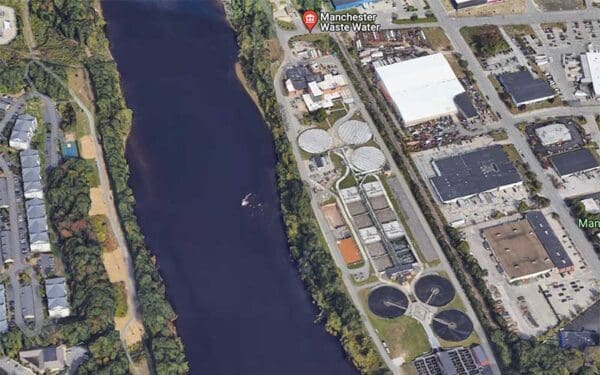
Bartlett Station, in Boston's Roxbury neighborhood, was funded through social impact investing. It features affordable apartments anchored by a grocery store at the ground floor. Photo: Pam Reynolds
In the world of investing, real-world outcomes are often neatly severed from investment strategy. Return on investment, rates, and yields are guiding principles that supersede seemingly idealistic notions of community-building and the environment.
But a more thoughtful and creative investment approach has taken root over the past decade. That approach recognizes that the savviest long-term investments bolster the well-being of each of us as well as our environment. It’s often referred to as social impact investing, and at CLF, we believe it is just as essential to support a healthy built environment – the places where people live, work, and play – as it is to support a nature preserve. Our big-picture philosophy recognizes that a truly vibrant economy is only possible when all of us are healthy – physically and mentally. We’re working in partnership with the business community to challenge the conventional paradigm that earning profits comes at the expense of people, their communities, and the environment.
Our vision recognizes that your zip code shouldn’t predict how long you will live, as it most distressingly does now. It acknowledges that historic and abiding discriminatory policies like redlining and racial segregation have affected, and continue to impact, the health, educational, job, and wealth prospects of many Black and Brown families. It also understands that the only just way to move to a carbon-free, net-zero future is to build projects addressing the intersection between health and economic disparities, social injustices, and climate change.
New Investing Paradigms in Action
With those convictions firmly in mind, CLF, in partnership with the Massachusetts Housing Investment Corporation, established the Healthy Neighborhoods Equity Fund (HNEF) in 2015 and the Healthy Retail and Commerce Fund (HRCF) in 2019 to invest in the building blocks of healthy communities. HNEF was designed to entice new sources of capital to mixed-use, mixed-income real estate projects that will spark vibrant, healthy neighborhoods with transit, parking, markets, and affordable homes. HRCF was developed to help health-promoting businesses grow and thrive. Both funds combine investments from hospitals, health insurers, foundations, banks, and individuals to invest in affordable housing and support businesses that create new quality jobs, improve food access and affordability, and spark new economic vitality in neighborhoods that have endured historic disinvestment.
In Roxbury, both funds have helped get Bartlett Station and Nubian Markets off the ground. The development transformed a former MBTA bus yard into 28 affordable and market-rate apartments a short walk from public transit stations. On the ground floor, HRCF enabled the opening of a combination café, grocery store, and halal butcher. The market has already become an important resource for neighborhood residents who, for many years, struggled to find fresh food options close to home.
All told, HNEF has created over 500 energy-efficient apartments, an estimated 600 temporary construction jobs, and 110 permanent jobs since its founding, representing social impact investing at its best. Its developments are designed to be affordable, walkable, and close to public transit, meaning that residents don’t necessarily have to climb into a polluting vehicle to run errands or go to work. Many of the homes are outfitted with electric heat pumps instead of carbon emitting gas systems, as well as other energy efficiency measures.
And, four enterprises have received capital from HRCF to date, all of which provide good jobs and wealth-building opportunities while also lifting up the health of the customers they serve and their neighborhoods as a whole.
Ultimately, individual residents, communities, and cities reap big rewards, as does the planet, from these social impact investments: potentially better health and longevity for residents; easier, less-carbon-intensive commutes; and fewer buildings heated and cooled by climate-damaging fossil fuels.
We’ve seen for ourselves that investing holistically in communities can pay dividends, not just for an individual investor’s portfolio but for society and the environment. In the face of climate change, increasing health disparities, an affordable housing crisis, and transportation inequities, it’s time that we realize that the highest returns are not always the financial ones.




